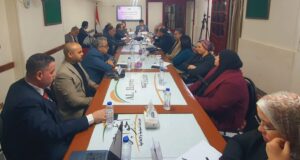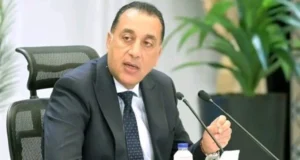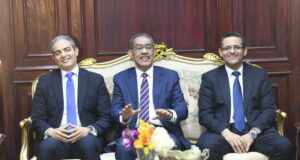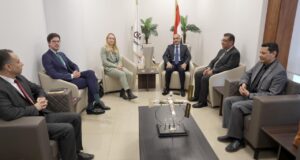World Urban Forum wraps up with 24,000+ attendees united for sustainable and equitable cities
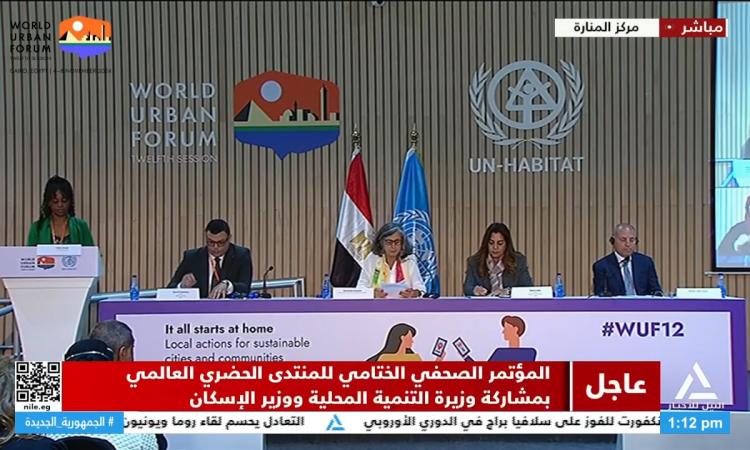
alhadath – cairo
Cairo, 8 November 2024 The twelfth session of the World Urban Forum (WUF12), hosted by UN-Habitat, concluded today, marking a significant milestone in global efforts to shape sustainable, inclusive urban spaces. Held over 5 days, the Forum welcomed more than 24,000 participants from 182 countries, with an unprecedented 92 per cent attending in person, demonstrating the global commitment to tackling urban challenges through collaborative solutions.
This year’s theme, “It all starts at home: Local actions for sustainable cities and communities” brought together leaders, innovators, and advocates from a wide array of sectors, all focused on building resilient, equitable cities that can address future demands. The Forum facilitated dynamic discussions, partnerships, and actionable commitments aimed at addressing some of the most pressing issues cities face today, from climate change and rapid urbanization to affordable housing and urban equity.
Regional representation was led by Africa, with 69 per cent of attendees, followed by Asia (13.9 per cent), Europe (11 per cent), the Americas (5.7 per cent), and Oceania (0.3 per cent). With delegates representing academia, government sectors, the private sector and foundations, international organizations, civil society, and the media, WUF12 provided a comprehensive platform for all voices and perspectives to be heard.
Throughout the event, a lineup of 407 prominent speakers addressed key urban issues through 37 main session events, achieving an important milestone in gender parity with 201 male and 206 female speakers. High-level participants included four heads of state, 60 ministers, 45 deputy ministers, and 96 mayors from 84 countries, underscoring the commitment at all levels to prioritize urban sustainability.
Key highlights from WUF12 included:
Finance taking centre stage: Leaders across government, finance, and business tackled the urgent need to finance the Sustainable Development Goals (SDGs) at the local level. Discussions centred on mobilizing resources amid urban expansion.
ONE-HABITAT
1
climate challenges, and global crises. Key issues included enhancing local government capacity, securing predictable funding, and building effective partnerships, as well as creating tailored financial frameworks that empower cities to drive sustainable, inclusive growth.
Climate resilient urban design: A series of sessions focused on reimagining urban spaces to withstand and adapt to climate impacts, including rising sea levels, extreme weather events, and resource scarcity. Mayors from climate-vulnerable cities shared pioneering urban planning models to address these risks while promoting environmental stewardship and economic resilience.
Affordable housing for all: With rising costs of living impacting urban populations worldwide, sessions centred on equitable access to affordable housing were highly attended. Leaders discussed innovative financing mechanisms and collaborative public-private partnerships to increase access to housing while ensuring fair and safe living standards.
Smart cities for sustainable growth: Technology and sustainability experts discussed the intersection of digital innovation and environmental goals, unveiling new frameworks for “smart city” initiatives that prioritize inclusivity and long-term ecological health. Case studies from leading cities were presented, showcasing how data-driven solutions are improving urban efficiency and quality of life.
Children and youth: Recognizing the vital role of youth in shaping future cities, WUF12 featured a Children and Youth Assembly, bringing together young activists and leaders to discuss solutions for climate action, employment, and community engagement. The assembly highlighted the powerful role of youth in advocating for change and building bridges across generations.
Outcomes for lasting impact
At the close of the Forum, WUF12 issued the Cairo Call to Action, a document outlining commitments and pathways for sustainable urbanization. 1
“I commend the conclusion of the Cairo Call to Action which embodies the voices of WUF 12, cutting across all stakeholders,” said Anaclaudia Rossbach, Executive Director of UN-Habitat.
Outcome documents will be crafted with guidance from the newly established WUF Advisory Group composed of global stakeholders and local leaders. These will aim to reinforce WUF’s lasting impact on cities worldwide.
Commitment to action
Closing the Forum, UN-Habitat reaffirmed its commitment to turning ideas into actionable solutions that will continue beyond WUF12. “We are taking recommendations from WUF12 and the Cairo Call to Action […] to COP29 in Baku to align subnational and national efforts to meet the Paris Agreement goals and achieve the SDGs and implement the New Urban Agenda,” said Rossbach.
“I can confidently conclude that the WUF is now the world’s largest global urban coalition,” she added.
About the World Urban Forum
Established in 2001 by the United Nations, the World Urban Forum is the premier global conference on sustainable urbanization, designed to examine the impacts of rapid urbanization on cities, communities, economies, and climate change. Since its inception, WUF has been hosted in cities across the world, with the first session held in Nairobi, Kenya, in 2002.
About UN-Habitat
UN-Habitat is the United Nations entity responsible for sustainable urbanization. It has programmes in over 90 countries supporting policymakers and communities to create socially and environmentally sustainable cities and towns. UN-Habitat promotes transformative change in cities through knowledge, policy advice, technical assistance, and collaborative action. To know more, visit unhabitat.org.
 +00000000
+00000000







